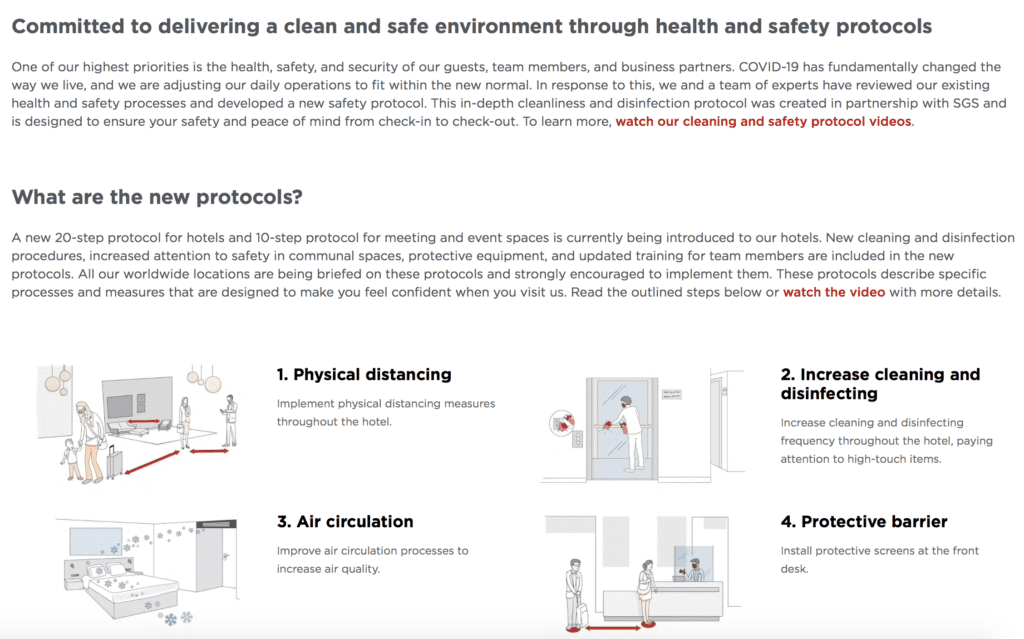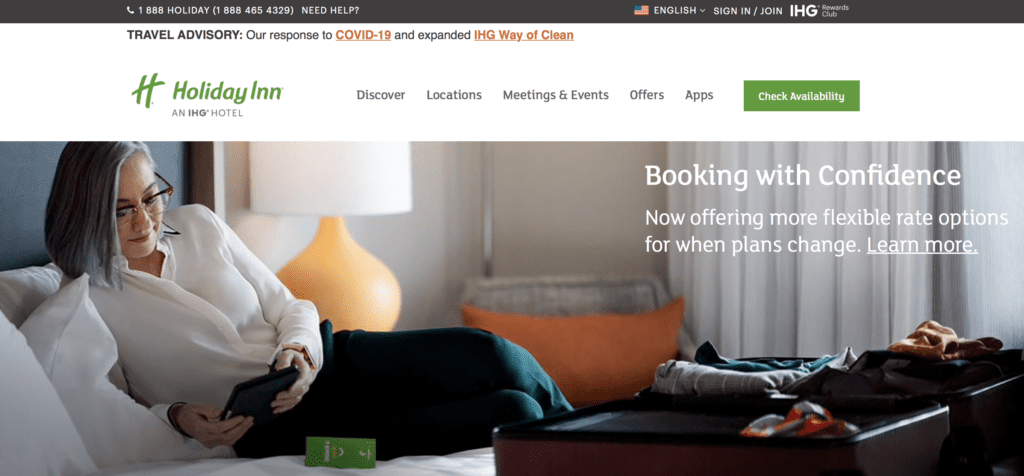As U.S. states re-open (in fits and starts) after the COVID-19 lockdown, many may have expected to see a return to “business as usual.” Interestingly, what these first few weeks have shown is that the way businesses are now operating is anything but “usual.” In fact, it is probably fair to assume that going forward, we will continue to see a shift in business practices and priorities. The hotel industry, which has been hit hard by the pandemic, is demonstrating how to be resilient both in its customer experience and marketing as times change. Let’s take a closer look at how hotels are evolving.
The Hotel Experience Has Changed
Many in the lodging sector closed for months during the lockdown, while others operated at a fraction of their maximum occupancy. In some cities where COVID-19 cases were rampant, hotels closed their doors to the general public, and instead offered up free lodging to essential workers so that they could be close to their workplaces and keep their own families safe from exposure.
Now that more and more hotels are beginning to re-open to the public, we are seeing some very interesting changes in the industry. Prior to COVID-19, most hotels relied on their list of amenities to attract potential guests. Pools, on-site dining, spas, room service, valets, bellhops and more were just a few of the luxury offerings that distinguished one hotel from another. But with a new focus on safety, many of those extras are no longer available.
According to a recent article by Conde Nast Traveler, your hotel experience will feel different from the moment you enter the lobby. While the lobby has traditionally been a busy social hub of the hotel experience, it is very likely travelers will now encounter limits on the number of guests in the area, as well as paperless check-ins and digital room keys downloaded to the hotel app, replacing the previous key cards. Perhaps even before entering the lobby, guests may notice the lack of valet service or even bellhops. In order to reduce the number of touches exchanged between travelers and staff, hotels may opt to remove some of these services. so be prepared to park your own car and carry your own luggage.
Of course housekeeping changes will be at the top of the list when it comes to safety precautions. Many hotels are opting to put a “safety seal” on hotel room doors, indicating that no one has entered the room since it was thoroughly cleaned and sanitized. The room may also look sparser than expected, as items such as decorative pillows, notepads, and pamphlets, which can be hard to disinfect, may be removed. Cleaning protocols will be enhanced to include CDC-approved cleaning supplies and techniques, and a several-day buffer may be instituted between guest stays in a room. Some hotels may continue to offer room service, but it will be done using a contactless approach. Amenities such as on-site dining, pools, and spas will operate with more structure, limiting the number of guests and times of operation.
How Hotels Are Changing Their Messaging
To reflect this changing experience, hotels have needed to adapt their marketing strategies. For example, one True Interactive client, a luxury hotel chain, recognies that travelers will have a different set of priorities when booking reservations. So our client has shifted messaging to focus on a more flexible booking and cancellation policy. A deposit at time of booking is no longer required, and a more lenient cancellation policy requires only 48-hour notice for a full refund. While the hotel chain is doing everything they can to ensure a safe and enjoyable stay, they still recognize the pervasive sense of uncertainty experienced by many leisure travelers right now. The chain is making big changes to accommodate travelers looking for flexibility when booking: the option, in other words, to change their minds.
Our client’s actions are consistent with how many other hotels have adapted their online experience. If you visit most hotel websites today, you will find reassurance front-and-center that your health is their priority. The Radisson Hotels’ home page, for example, features a banner guests can click on for more information about Radisson’s flexible booking policy and health/safety protocols. The latter are spelled out clearly, detailing efforts like team member temperature checks, and the installation of protective screens at the front desk.
Holiday Inn’s home page also addresses COVID-19 concerns head-on. The hotel’s “book now, pay later policy” requires no deposit and includes flexible terms for cancellation.
A page dedicated to explaining the hotel’s cleaning philosophy is worded in friendly, reassuring language, as his example from a Cleveland-area Holiday Inn : “When you’re ready to travel again, we’ll be ready to welcome you.” Holiday Inn also highlights the hotel’s partnership with the Cleveland Clinic to develop best practices for “returning to work and keeping guests safe.”
Contact Us
To stay competitive, all businesses are wise to re-evaluate their policies and safety standards, ensuring they are aligned with what consumers now expect. Moreover, businesses need to communicate these policies clearly. If your business needs help navigating the digital landscape in this new world, contact us. At True Interactive we are experienced and ready to help you at every turn.
Photo by Valeriia Bugaiova on Unsplash

